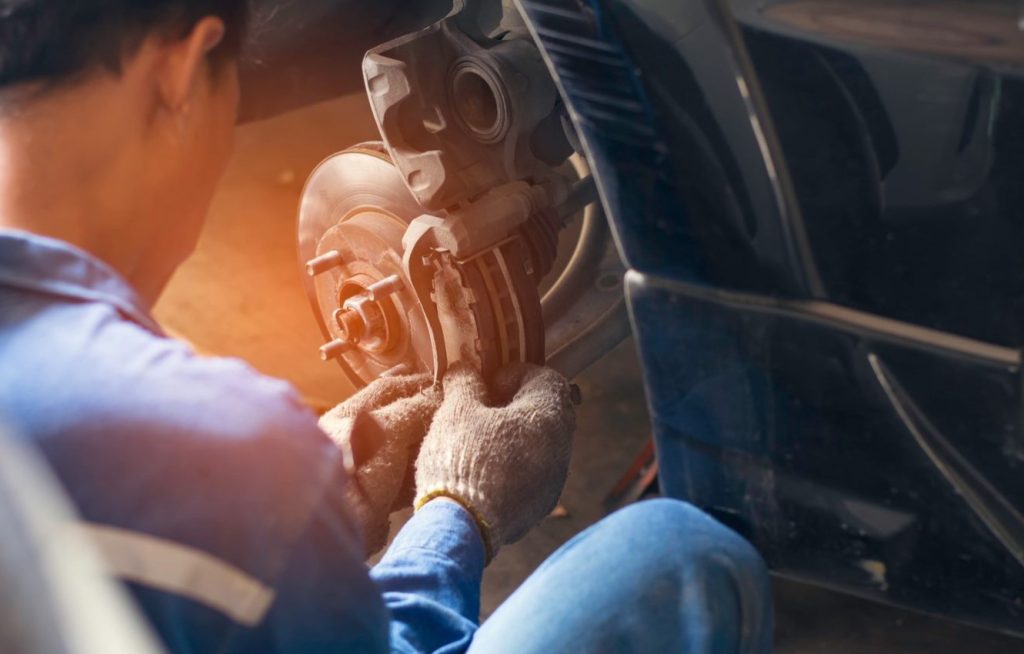Your car’s brakes work effectively to allow you to control your speed and stop when you need to. Time, environmental conditions, and wear and tear can damage your brakes. As your Chevrolet dealer, we want you to enjoy your time on the road in safety. These are a few signs that you could have brake trouble and it’s time to visit us for a brake repair.

Soft Brake Pedal
When you press down on the brake pedal, you’ll feel resistance from the brake fluid. This highly pressurized fluid allows your braking system to work effectively. The brake fluid forces the calipers to close against the wheel rotors as soon as you mash the brake pedal. The calipers contain brake pads that produce friction against the rotors and bring your car to a stop.
A soft brake pedal is a situation where the brake pedal supplies low resistance when you step on it. The lack of resistance can be caused by a blockage in the brake hoses, a brake fluid leak, or a mechanical issue. Regardless of the cause, a soft brake pedal makes applying the brakes slower and less effective. Our technicians will examine your braking system to find the cause of the problem and repair it.
Hard Brake Pedal
This situation is the opposite of the one above. In this case, your brake pedal provides far more resistance than it should. Stepping on the brakes will also slow your braking response, as you have to exert more pressure to force the brakes to engage. This particular problem is usually caused by the failure of the brake pedal booster.
The booster is connected to the braking system. It uses a vacuum system to increase the pressure you exert on the brake pedal. This reduces the effort needed to engage the brakes. The booster is a robust component, but it can wear out. If the vacuum inside the booster is compromised, the booster won’t work. We’ll check the booster and replace it if it’s failed.
Grinding Noises
A harsh grinding sound when you brake can be caused by several issues. One potential cause of the problem is a stone or other hard object that is trapped in one of the calipers. Each time the brake fluid forces the caliper to close, the stone will generate a grinding noise against the metal.
Another possible cause of the noise is rusted brake components. The calipers are exposed to water, mud, and snow. Over time, this can cause rust and rusted parts will make grinding or squealing sounds as they work. Our technicians will investigate the issue and fix the problem.
If you experience an issue with your brakes, call us immediately at Allen Tilley Auto Chevrolet Buick GMC.






